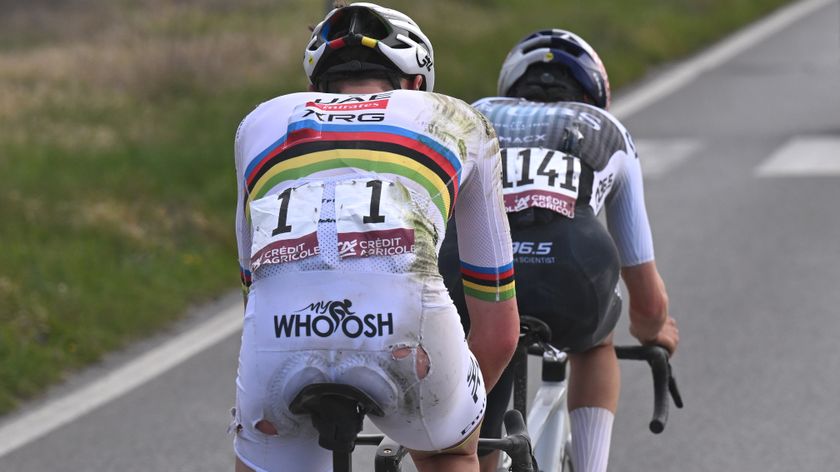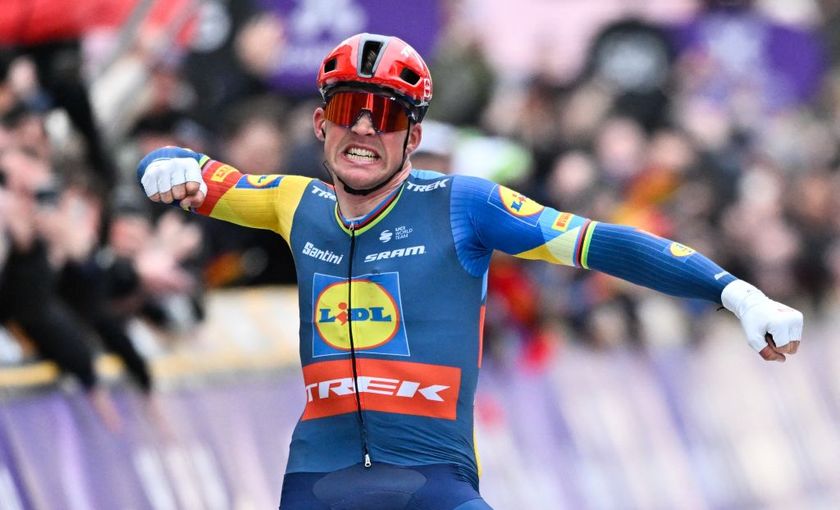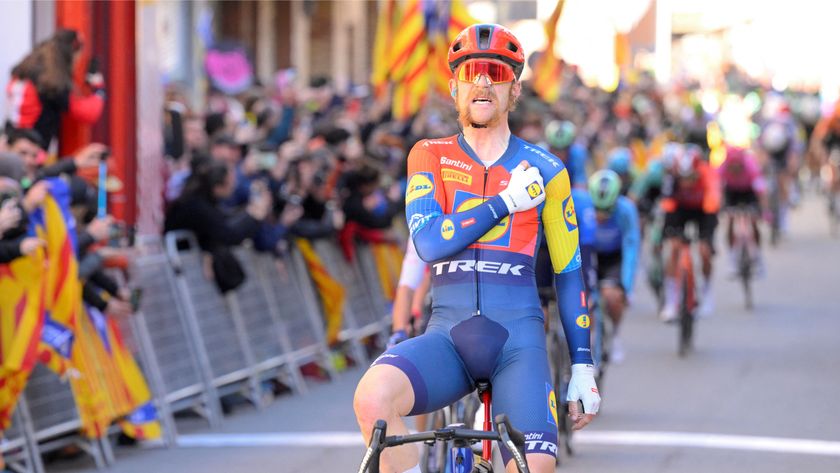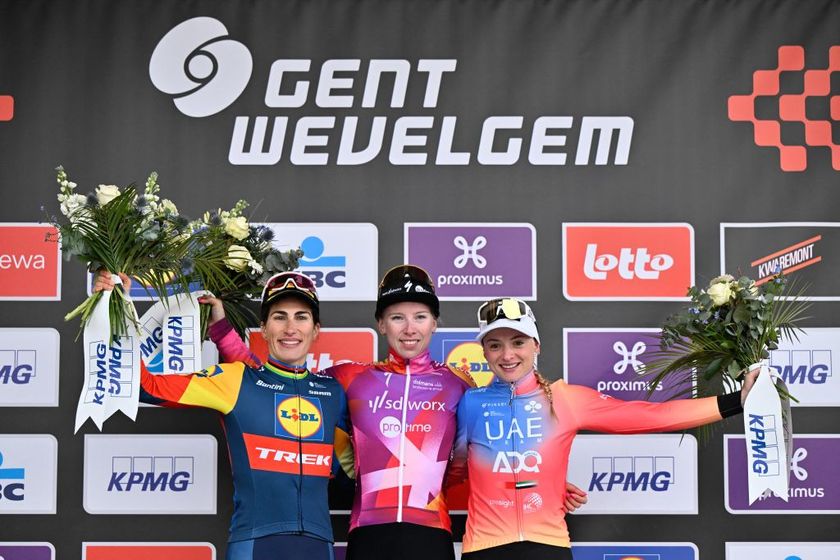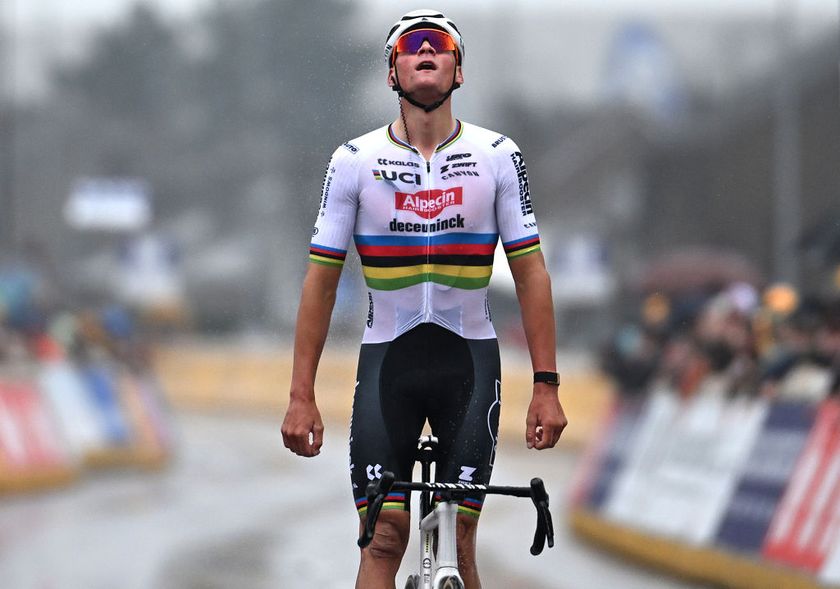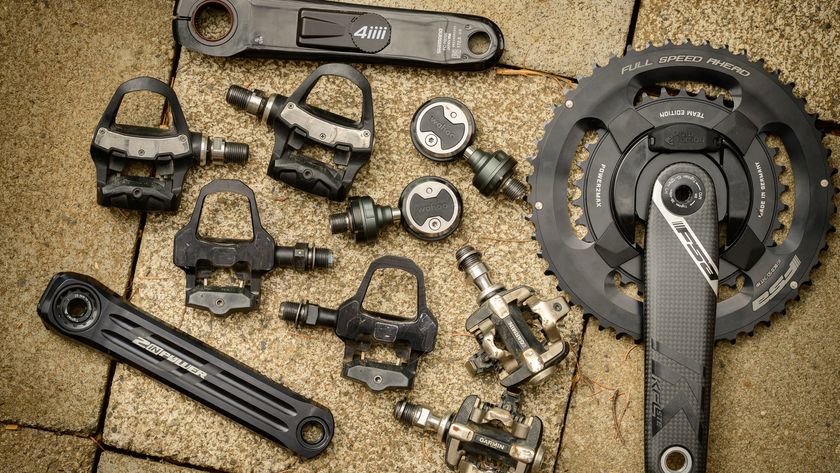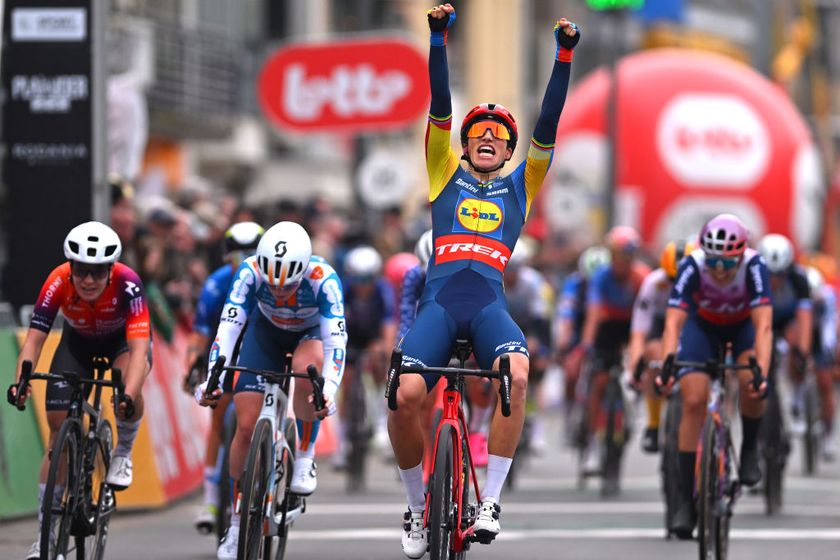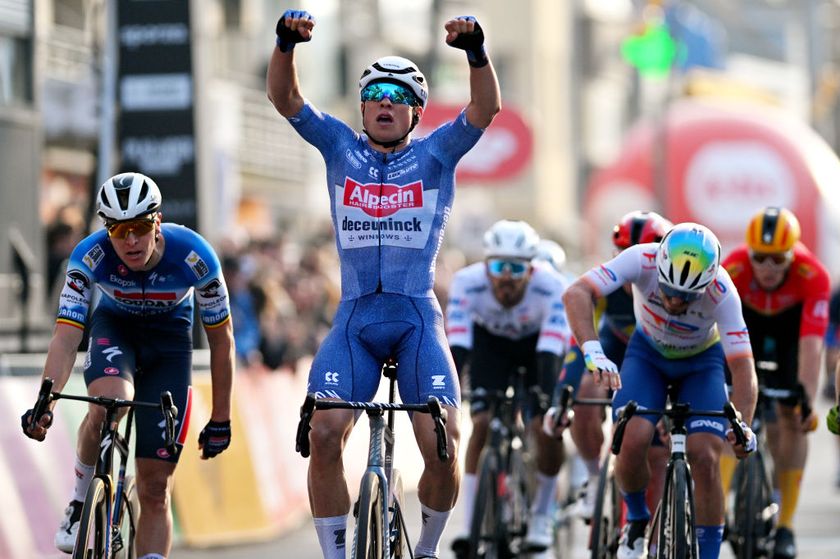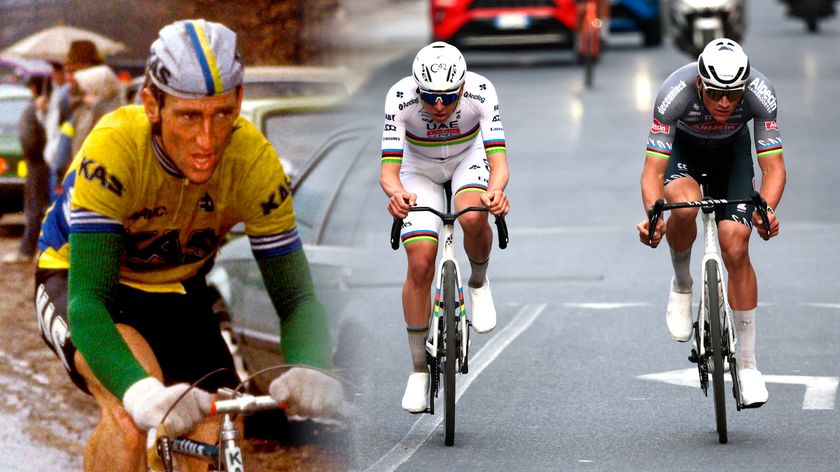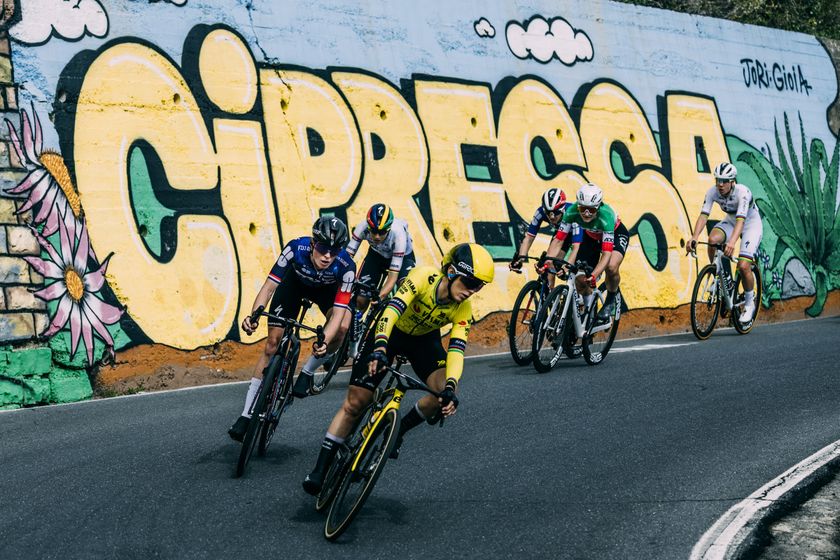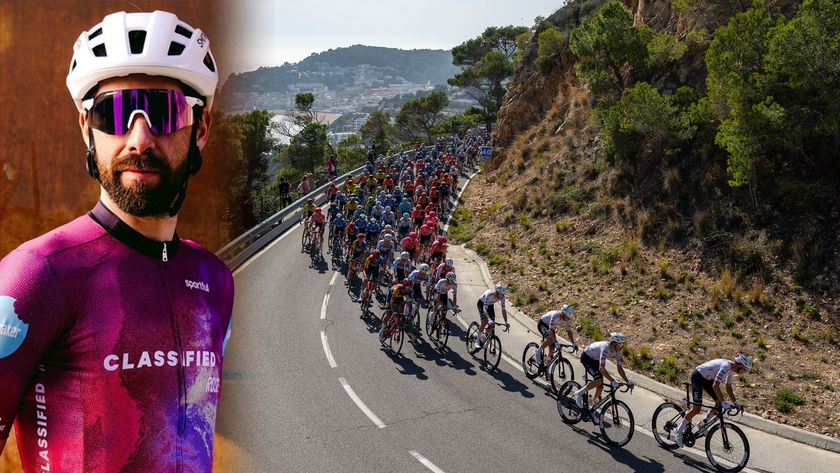The Classics' most surprising winners
Forget the favourites, these guys did it their way







As the opening Classic, Milan-San Remo, approaches, all talk is on which rider is the favourite for the race, but what of the lesser-known champions of these great events? Peter Cossins takes a look back at ten of the biggest surprises in Classics history.
Gilbert Duclos-Lassalle, 1993 Paris-Roubaix
A surprise not because Duclos became the oldest Roubaix winner ever at 38 years old, nor because he achieved the rare feat of retaining the title he'd won the year before, but because the Frenchman beat a younger and stronger rider in Franco Ballerini who felt sure he was going to win and indeed thought he had won.
At the Carrefour de l'Arbre, Ballerini's directeur sportif, Patrick Lefévère, told the Italian to attack with all he had. Duclos somehow clung on, knowing he was weaker but could outfox his rival. He let Ballerini do most of the work into Roubaix, then edged the sprint by just eight centimetres. "I will never come back to Roubaix," Ballerini lamented. Asked what mistake he had made, he replied: "My mistake was becoming a professional cyclist."
Dirk Demol, 1988 Paris-Roubaix
The Belgian who's now a RadioShack directeur sportif was the eighth and final selection for the ADR team. His job was to support Eddy Planckaert's interests and he did so by getting into a break of 13 riders that went clear after 44km. The gap stretched to 11 minutes, dropped back to three minutes, but rose again after Sean Kelly fell in the Arenberg Forest and the chase lost impetus.
All this time, the lead group was being whittled down until Demol found himself with just Thomas Wegmüller for company. "He led on the pavés and I held myself back," said Demol. "I knew if it came to sprint I'd have edge." It did and Demol claimed victory after a break of 222km, the longest in Roubaix history.
Get The Leadout Newsletter
The latest race content, interviews, features, reviews and expert buying guides, direct to your inbox!
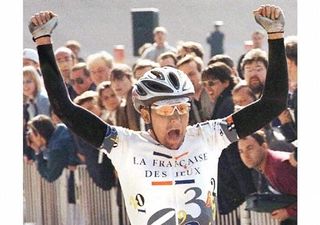
Frédéric Guesdon, 1997 Paris-Roubaix
The Française des Jeux rider would probably not have won if Johan Museeuw hadn't punctured with 15km remaining when leading with Andrei Tchmil and Fred Moncassin. Museeuw fell back to a chasing group of five, and this group caught the two leaders two kilometres from the finish.
Museeuw was everyone's favourite, Guesdon was no one's. When the little-known Frenchman attacked on the back straight of Roubaix's velodrome, the other seven riders each waited for someone else to respond. By the time the response came, Guesdon was clear and about to celebrate the most unexpected of victories (pictured above).
Jacky Durand, 1992 Tour of Flanders
Soon to become the king of the kamikaze breakaway, Durand (below) was a promising 25-year-old with Castorama when he lined up in the 1992 Ronde. With 217km remaining Durand went clear and was joined by Swiss Thomas Wegmüller and Belgians Patrick Roelandt and Hervé Meyvisch.
The main pack let their lead balloon to almost 20 minutes, confident they could hunt them down easily in a strong headwind. But it didn't work out that way. After the two Belgians had been dropped, Durand attacked Wegmüller on the final climb, the Bosberg, and soloed away to a totally improbable victory. It remains France's only Flanders success in the last 50 years.
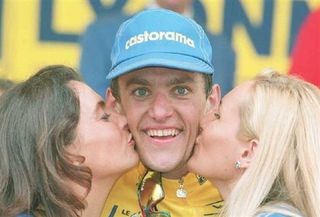
Grzegorz Gwiazdowski, 1999 Championship of Zürich
This victory by the young Pole riding for Cofidis highlighted Gwiazdowski's class. He attacked with Laurent Brochard on the descent of the first passes over Zürich's key climb, the Pfrannenstiel. Arturas Kasputis and Jörg Jaksche joined them.
With 100km remaining their lead was almost 10 minutes, but chase by the bunch whittled this down steadily going into the fifth and final lap. It was down to seconds crossing the Pfannenstiel and erased completely as eight riders got across to the leaders on the final small climb, the Rutihof. But as they did so, Gwiazdowski attacked again, flew down the descent and held a small lead into the finish to claim an outstanding victory.
Evert Dolman, 1971 Tour of Flanders
An off-day for Eddy Merckx meant that his Molteni team-mates were given free range at the '71 Ronde but they were matched by a strong contingent from the Flandria team managed by "Lion of Flanders" Briek Schotte.
When Flandria's Dolman attacked on the road into Ghent, no one responded and the 1966 world amateur champion stayed clear for what would be his biggest pro win. Two years later, a serious leg injury brought his career to a premature close.
Roger Rosiers, 1971 Paris-Roubaix
Only 24 when he won "the hell of the north", the Belgian who had once planned to become a priest looked set for an illustrious career in the cobbled Classics, but quickly settled back into a role as a domestique for Jan Janssen and Luis Ocaña.
Few beyond Rosiers' renowned directeur at Bic, Maurice de Muer, rated his chances. Even Rosiers himself thought his hopes had gone when he punctured for the third time. But he got back to the lead group, attacked on the cobbles from it and was never seen again by a chase group comprising no less than Herman Van Springel, Merckx, Roger De Vlaeminck, Janssen, Eric Leman, Marino Basso and Felice Gimondi.
Gilles Delion, 1990 Tour of Lombardy
Now remembered more for being one of the first riders to speak out against doping within the pro peloton than his successes on the road, Delion turned pro in 1988 and finished second in Lombardy the following year. In 1990, he claimed the best young rider's prize at the Tour de France, finishing 15th overall, and carried that form through the rest of the season.
Victory ahead of Pascal Richard and Charly Mottet underlined Delion's status as France's next big thing. However, beset by constant bouts of mononucleosis, Delion's career unfortunately fizzled out in the mid-90s.
Gabriele Colombo, 1996 Milan-San Remo
You have to go back 14 years to find the last occasion when San Remo was won by a rider who had attacked on the penultimate of the capi, the Cipressa. That man was 23-year-old Gewiss rider Colombo, who went away with Alexandre Gontchenkov, Max Sciandri and Michele Coppolillo.
Colombo attacked this trio a kilometre from the line and held on to win by a second from Gontchenkov. Hailed as the next great Italian Classics hero, Colombo's star fell away rapidly as he failed to win another big one-day race or a major tour stage.
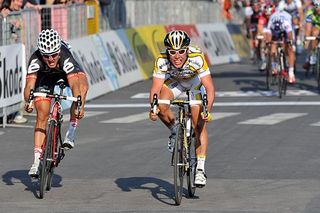
Mark Cavendish, 2009 Milan-San Remo
The consensus coming out of last year's Tirreno-Adriatico was that the Manxman had no chance at San Remo based on the struggles he'd appeared to be having on Tirreno's climbs. Tom Boonen, for one, wrote Cavendish off completely.
It turned out Boonen was just the most prominent of those who'd been fooled by Cavendish and his Columbia team. He'd known his form was good and improving at Tirreno, but deliberately eased off on the climbs. Well advised by four-time San Remo winner Erik Zabel, Cavendish got over the Poggio no problem and was the quickest to respond to Heinrich Haussler's late break (pictured above) to take the title right on the line.
Can he repeat? His Tirreno form suggests not, but Boonen for one won't be counting on that... discuss the race on the Cyclingnews forum!
Peter Cossins has written about professional cycling since 1993 and is a contributing editor to Procycling. He is the author of The Monuments: The Grit and the Glory of Cycling's Greatest One-Day Races (Bloomsbury, March 2014) and has translated Christophe Bassons' autobiography, A Clean Break (Bloomsbury, July 2014).
